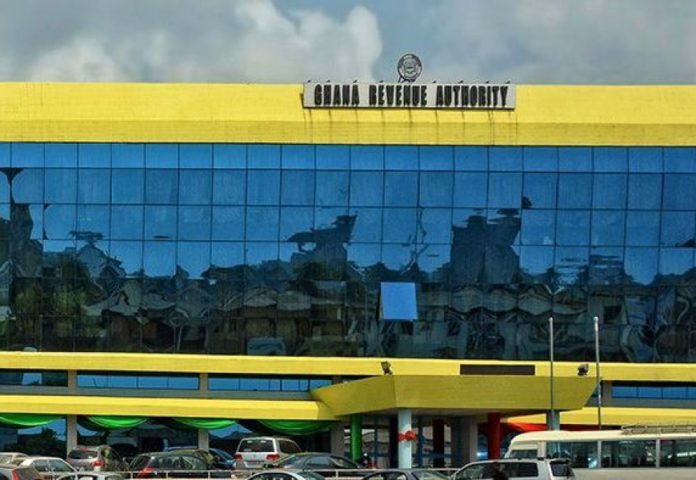The Ghana Revenue Authority says it is taking steps to enable businesses and individuals pay taxes through the banks.
The initiative, to be rolled out after authorization to designated banks, is meant to relieve tax payers of the burden of physically showing up at tax offices to fulfill their commitment.
Acting Commissioner-General, Rev Ammishaddai Owusu-Amoah, reveals this and other strategies will enhance achievement of the authority’s revised 2020 target of 55.02 billion Ghana Cedis.
“GRA will authorize banks to accept the payment of taxes. This will allow tax officials to carry out tax duties and mobilize revenue which is our core mandate
This will also bring convenience into tax payment as taxpayers will not have to physically come to GRA offices to pay taxes.
In the same vein, the Authority will introduce the payment of Vehicle Income Tax and Tax Stamp payment through mobile money.”
Board and management of GRA are meeting with industry players and other stakeholders at the 2020 management retreat in Kumasi.
Under the theme, “Roadmap to Excellence”, deliberation will focus on strategies for achieving revenue targets for the year.
GRA has meanwhile challenged itself to generate 55 billion ghana cedis in tax revenue from the initiative 47 billion cedis at the end of 2020.
Reverend Owusu-Amoah, explains the figure is a growth of 25.2 percent over the previous year’s collection.
Meanwhile, it collected a total of 43.9 billion cedis against a revised target of 42 billion cedis by the close of 2019.
This represents a revenue growth of 16.6 per cent and exceeding the revised target by 4.4 percent.
To achieve this year’s ambitious target, Rev Owusu-Amoah says the authority targets to increase its debt collection ratio from 12 percent to 25 percent.
““Massive debt collection exercises which were intensified in December 2019 will continue. Defaulting taxpayers, will be dealt with as the law allows us to do, as we plan to double our debt collection ratio from the current average of 12 percent to 25 percent by 2020.
Efforts will also be intensified to bring into the tax net taxpayers outside the tax net while also paying critical attention to improved customer service”.
The state collection agency also hints of improvement in the informant reward scheme under which people are compensated for providing information leading to recovery of taxes.
Board Chairman, Professor Stephen Addai, says the authority will provide relevant tools, including procurement of 3,000 laptops, to enhance staff operations.
“So we want to expedite getting you the tools. The budget has been approved and so we are going to buy 3000 laptops this year.
We want everybody should have laptop and to work not to decorate your desk but to be an instrument for you to work with and they all will be linked to the server and whatever you do on it we shall see it.”
Professor Addai continues that, “…so we won’t wait till the end of the month I am calculating whether we have met the target or not but we will get to know in real time”.
MORE
Meanwhile, the authority says it will continue to undertake a strong digitization drive as part of its transformation agenda.
In the course of the year, it will automate the payment of Value Added Tax (VAT) which will involve linking teller systems of VAT registered businesses to a centralized database to ensure that VAT collected is credited to the authority in real time.
Also all the modules in the second phase of the integrated Tax Application and Processing System (ITaPS) will be rolled out starting from March 2020
This system will automate filling of returns, issuance of tax clearance certificate, withholding tax credit certificate and tax credit certificate among others
Meanwhile, Ashanti Regional Minister, Simon Osei Mensah, asked the GRA to make payment of taxes easier.

